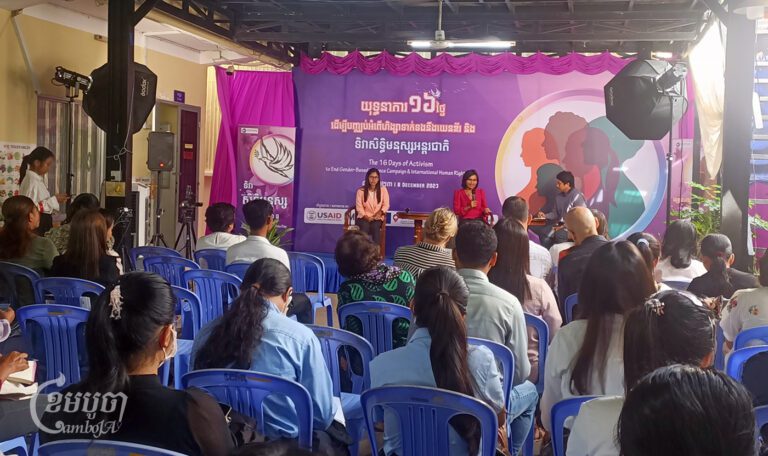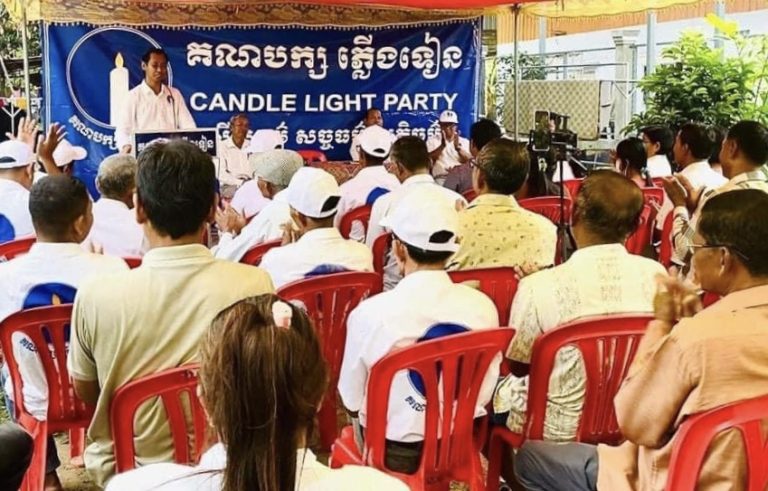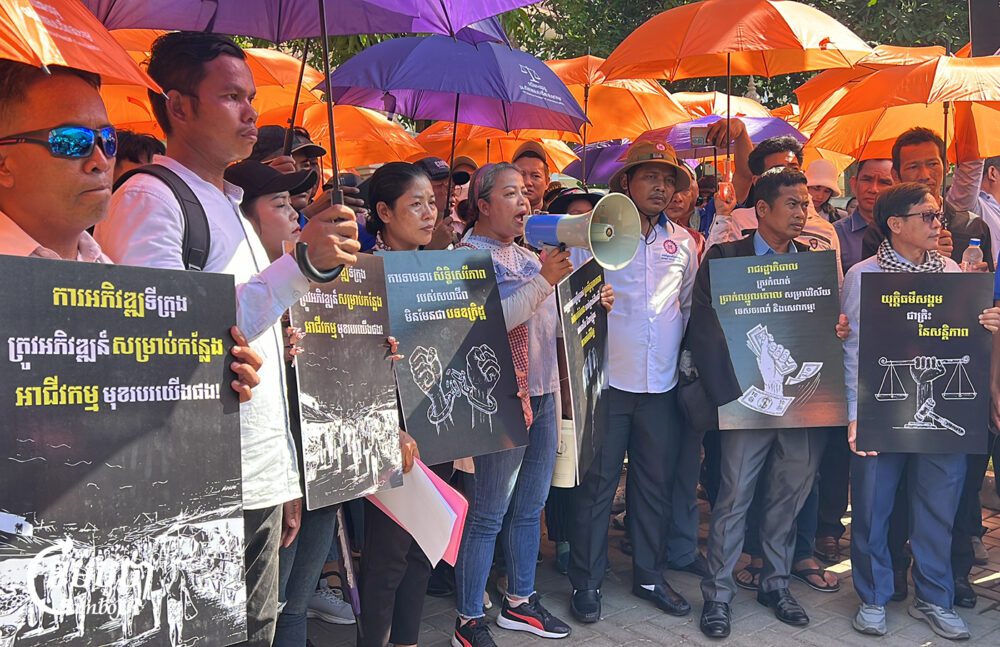“What can I do besides having to raise them myself when I don’t have much support? I cry every day when it’s too hard to bear the responsibilities of being a mother of a newborn baby,” said a Cambodian mother of a 4-month-old infant who opened up to me about her experience as a first-time parent.
This woman is certainly not alone in these feelings. Our societal expectation is that the transition into motherhood will bring nothing but joy. But for some the experience includes emotional turmoil, with new Cambodian mothers facing particular stressors.
Faced with the pressures of physically healing from pregnancy and birth, new responsibilities, traditional customs for new mothers, and toxic beauty standards, this emotional turmoil for new mothers can turn into postpartum depression.
The prevalence of postpartum depression among Cambodian women, based on research conducted in 2016 among 12,810 participants, was 13%.
The issue is too rarely discussed in private let alone at the policy level. Having and raising children is such a blessing, but new mothers in our country lack support at all levels — from individuals, from wider society and from the state.
What is Postpartum Depression?
Postpartum depression can happen at any time during the first year after delivery, and can affect any new parent, including men. As postpartum depression can develop gradually, new mothers may not even realize they are struggling with it or know enough to put a name to the changes they are experiencing.
Symptoms of postpartum depression are wide-ranging but can include a persistent feeling of sadness, a lack of enjoyment or a loss of interest in the wider world. Mothers experiencing postpartum depression can also have trouble sleeping and may find it difficult to look after themselves or their baby. To make matters even more difficult, it is not uncommon for those experiencing this type of depression to withdraw from other people, even those who form their support system.
There are a number of potential causes of postpartum depression including a difficult birth experience, hormonal changes, rekindled grief from previous losses, demands of caring for a new baby, stress from family relationships and external stresses on the family.
Cambodian Societal Expectations Impact New Mothers
Despite advancements in the medical sector, Cambodia still embraces many traditions that dictate what new mothers are expected to do after they give birth. These traditional practices have the potential to increase the toll on the mental health of new mothers who already have to shoulder many responsibilities.
The postpartum period, or in Khmer “sor sai kchey,” is thought to be the most important time in a woman’s life as her health is considered fragile. During this period, a woman’s body is believed to be in a cold state due to the damage of blood vessels or nerves during childbirth.
Considering this, new mothers are expected to follow specific postpartum practices such as being confined to bed for 30 days while warming their bodies with heat from a fire, known as ang “pleung.” New mothers are told to avoid cold foods and only consume certain dishes, such as rice porridge or a traditional braised meat dish called “khaw.” Other expectations include refraining from lifting heavy things or standing for long periods.
Cambodian mothers are also often held to exacting beauty standards. They are encouraged to take care of their appearance and follow customs such as applying a mixture with galangal or turmeric root all over their body to improve their skin, despite how inconvenient this process is.
A number of responsibilities, ranging from breastfeeding to changing diapers, are shouldered by mothers as well. As reported by a survey of the Klahaan organization in 2022, 88% of respondents felt that women usually perform more housework than their male partners, including doing household chores and taking care of their children. In 2018, a report released by ILO indicated that Cambodian men perform only 18 minutes of caring and household services per day, compared to 188 minutes for women.
These expectations, responsibilities and customs take a physical and emotional toll on new mothers. Restricting one’s diet to certain foods that may not be as nutritious and doing special skin treatments to remain beautiful, all while taking care of an infant, can be draining to keep up with, especially without sufficient support.
“I feel like everything I did is wrong. When I ate something that caused sickness for my baby, I got asked: what did I eat? It’s not like I want to eat that but I need energy,” said the mother of the 4-month-old.
Preventing or mitigating these feelings among individuals requires systemic changes in the ways we support new mothers.
Maternal Mental Health and National Policy
Most of the maternal health policies in our country focus on enhancing the physical conditions of mothers and reducing the mortality rate of mothers and infants. But not enough attention is paid to maternal mental health during pregnancy and during the postpartum period.
The Cambodian government has prioritized maternal health in its strategic plans and the maternal mortality rate in Cambodia has declined significantly from 2000 to 2016, owing to improvements in accessibility and quality of healthcare for mothers and children, though the trend has reversed slightly in recent years.
In the National Health Strategic Plan (2016-2020), the government set three goals related to maternal and neonatal health: improving reproductive health and reducing maternal, new-born, and child mortality and malnutrition; reducing morbidity and mortality due to major communicable diseases; and reducing morbidity and mortality due to major non-communicable diseases and other public health problems.
Yet maternal mental health was not included in the plan.
Moreover, there have been few academic studies on postpartum depression in ASEAN countries and none focused on Cambodia, a recent review of existing research found.
How Cambodia Can Help New Mothers
Despite the postpartum period being honored as a sacred time in Cambodian culture, maternal mental health is often neglected by individuals and left behind at official levels in Cambodian national health policies. There are steps that individuals, society and the state can take to begin to address the issue of postpartum depression.
First, family members of new mothers should support them as much as they can during this stressful transition period. Some sor sai kchey customs that medical research has shown can be harmful should be eliminated and unrealistic beauty standards for new mothers shouldn’t burden them.
Secondly, since we lack national data on postpartum depression experienced by mothers, we should expand research on maternal health. The physical and mental health of new mothers, their experience with role adaptation and their quality of life are all vital areas in need of research and policy intervention.
Finally, maternal mental health should be integrated into the national health strategic plan as experts continue to understand the role mental health plays in holistic health. Consultations at the commune level as well as the production and distribution of informational booklets on maternal mental health across the country would be valuable actions the government could take.
Mothers are there at the very beginning of all of our lives. For all of their sacrifices on our behalf, in return let’s make their mental and physical health a priority. Changing Cambodian perceptions around postpartum depression and addressing this issue is up to all of us, as individuals and as members of society as a whole.
Theang Soriya is a junior research fellow at Future Forum.












